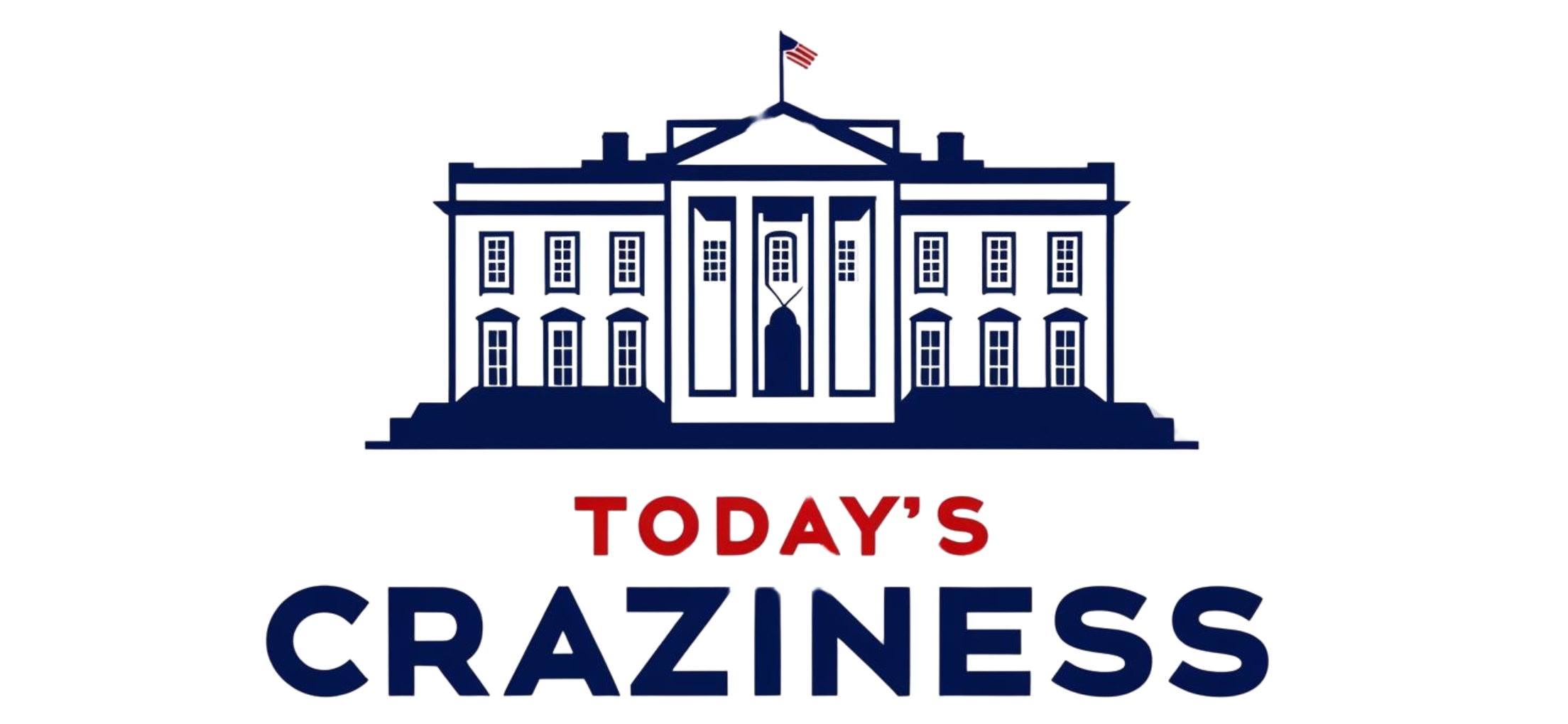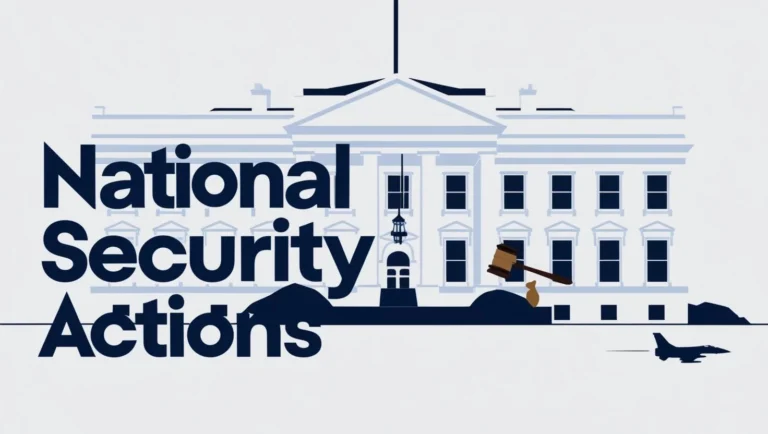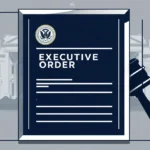President Trump accelerates his policy agenda, invoking wartime powers to deport gang members, launching airstrikes against Yemen’s Houthis, and dismantling Voice of America. Legal battles mount over immigration enforcement, while global tensions rise as Iran is warned. These decisive actions reshape U.S. policy, sparking intense debate on national security, diplomacy, and executive authority.
President Donald Trump has recently undertaken significant actions impacting national security, immigration policy, and foreign relations. These developments include military operations in Yemen, the invocation of historical legislation to address gang-related threats, and the rescission of previous executive orders.theguardian.comwhitehouse.gov
1️⃣ Executive Orders & Policy Actions
a. Invocation of the Alien Enemies Act Against Tren de Aragua
🔑 Key Takeaways:
- What happened? President Trump invoked the Alien Enemies Act of 1798 to expedite the deportation of members of the Venezuelan gang Tren de Aragua (TdA), designated as a Foreign Terrorist Organization.nypost.com+6theguardian.com+6the-sun.com+6
- Why does it matter? This rare use of historical wartime powers aims to address security threats posed by TdA’s criminal activities within the U.S.whitehouse.gov+5reuters.com+5the-sun.com+5
- Who is impacted? Venezuelan nationals aged 14 and older affiliated with TdA residing in the U.S.the-sun.com+1nypost.com+1
- Potential consequences: Legal challenges regarding the application of the Alien Enemies Act; heightened scrutiny of immigration policies.people.com+2theguardian.com+2apnews.com+2
- Implications: Legal debates on executive authority; potential geopolitical tensions with Venezuela.theguardian.com
📄 Summary:
On March 15, 2025, President Trump invoked the Alien Enemies Act of 1798 to facilitate the deportation of Venezuelan nationals associated with the Tren de Aragua (TdA) gang, recently designated as a Foreign Terrorist Organization. The administration asserts that TdA members have unlawfully entered the U.S., engaging in activities that threaten national security. This invocation allows for the arrest, detention, and removal of non-citizens from hostile nations, bypassing standard legal procedures. The decision has sparked legal debates, with critics arguing that the Act’s application in this context is unprecedented and raises constitutional concerns. npr.org+6theguardian.com+6the-sun.com+6people.com+2the-sun.com+2apnews.com+2
b. Rescission of Previous Executive Orders
🔑 Key Takeaways:
- What happened? President Trump signed an executive order rescinding additional executive actions issued by the prior administration.whitehouse.gov+1whitehouse.gov+1
- Why does it matter? Aims to reverse policies deemed harmful and restore effective governance.whitehouse.gov+1whitehouse.gov+1
- Who is impacted? Federal agencies and programs affected by the rescinded orders.whitehouse.gov
- Potential consequences: Shifts in policy direction; realignment of federal priorities.
- Implications: Potential legal and administrative adjustments within affected agencies.ft.com
📄 Summary:
On March 14, 2025, President Trump signed an executive order rescinding a series of executive actions from the previous administration. This move is part of an ongoing effort to reverse policies considered detrimental and to implement the current administration’s agenda. The rescinded orders span various sectors, prompting federal agencies to adjust their strategies and operations accordingly.
2️⃣ Public Statements & Press Briefings
a. Announcement of Military Strikes in Yemen
🔑 Key Takeaways:
- What happened? President Trump announced airstrikes targeting Iranian-backed Houthi rebels in Yemen.en.wikipedia.org+4nypost.com+4apnews.com+4
- Why does it matter? Aims to protect international shipping routes and counter Iranian influence.whitehouse.gov+1thetimes.co.uk+1
- Who is impacted? Houthi forces in Yemen; regional geopolitical dynamics.
- Potential consequences: Escalation of military conflict; potential civilian casualties; strained U.S.-Iran relations.
- Implications: Increased military engagement in the Middle East; potential impact on global oil markets.
📄 Summary:
President Trump publicly announced the initiation of airstrikes against Iranian-backed Houthi rebels in Yemen. The operation aims to dismantle terrorist bases, leadership, and missile defenses to safeguard international shipping and restore navigational freedom in the Red Sea. The President emphasized holding Iran accountable for supporting the Houthis and warned of severe repercussions if threats to U.S. interests persist. en.wikipedia.org+4ft.com+4nypost.com+4en.wikipedia.org+4apnews.com+4thetimes.co.uk+4reuters.com
3️⃣ Meetings & Diplomacy
No specific events related to the provided sources.
4️⃣ Campaign & Political Engagements
No specific events related to the provided sources.
5️⃣ Legislative Approvals & Vetoes
No specific events related to the provided sources.
6️⃣ National Security & Crisis Response
a. Military Strikes Against Houthi Rebels
Details covered under Section 2: Public Statements & Press Briefings.
b. Legal Action Against Tren de Aragua Members
Details covered under Section 1: Executive Orders & Policy Actions.
7️⃣ Judicial & Legal Affairs
a. Legal Challenge to Deportation Policy
🔑 Key Takeaways:
- What happened? A federal judge temporarily blocked the administration’s use of the Alien Enemies Act for deportations.pbs.org+8theguardian.com+8apnews.com+8
- Why does it matter? Raises questions about the scope of executive power and due process rights.
- Who is impacted? Detained Venezuelan nationals; broader immigrant communities.thescottishsun.co.uk+3theguardian.com+3nypost.com+3
- Potential consequences: Legal precedents affecting future immigration enforcement; potential policy revisions.theguardian.com
- Implications: Ongoing legal battles may influence the administration’s immigration strategies.
📄 Summary:
On March 15, 2025, a federal judge issued a temporary restraining order blocking the Trump administration’s attempt to use the Alien Enemies Act to expedite the deportation of Venezuelan nationals associated with Tren de Aragua. Civil liberties organizations argue that applying the Act in this context is unconstitutional, as it has historically been used only during formal wartime against enemy nations. The court’s decision underscores the legal complexities surrounding the administration’s immigration enforcement measures. apnews.comtheguardian.com
8️⃣ Economic & Market Impact
No specific events related to the provided sources.
9️⃣ Public Sentiment & Media Coverage
a. Media Coverage of Military Actions
🔑 Key Takeaways:
- What happened? Major media outlets have extensively covered the U.S. military’s airstrikes against the Houthis in Yemen.
- Why does it matter? Coverage influences public perception of the administration’s foreign policy and its approach to Middle Eastern conflicts.
- Who is impacted? U.S. citizens, military personnel, Middle Eastern geopolitical players, and global trade interests.
- Potential consequences: Polarized public reactions, potential backlash from international organizations, and further scrutiny of Trump’s national security strategies.
- Implications: The administration may face increased calls for transparency on military engagements and diplomatic efforts.
📄 Summary:
Media outlets, including Politico, Reuters, and The Wall Street Journal, have reported on President Trump’s authorization of military strikes against the Houthis in Yemen. Coverage highlights the administration’s assertion that the strikes aim to secure international shipping lanes in the Red Sea and deter Iranian-backed aggression. However, critics argue that the escalation risks further entanglement in Middle Eastern conflicts and could provoke retaliatory attacks. Some reports indicate concerns from military analysts and diplomats about whether these strikes will achieve long-term strategic objectives or exacerbate instability in the region. (Politico, Reuters)
b. Public Reaction to Immigration Policies
🔑 Key Takeaways:
- What happened? The administration’s use of the Alien Enemies Act to deport members of Tren de Aragua has sparked protests and legal challenges.
- Why does it matter? The decision raises constitutional concerns regarding civil liberties and executive power in immigration enforcement.
- Who is impacted? Immigrant communities, civil rights organizations, and law enforcement agencies.
- Potential consequences: Heightened political tensions, potential Supreme Court challenges, and increased scrutiny of Trump’s broader immigration policies.
- Implications: Public demonstrations and legal actions may shape future policy adjustments or judicial rulings.
📄 Summary:
The administration’s decision to invoke the Alien Enemies Act for the expedited deportation of Tren de Aragua members has led to public demonstrations and legal opposition. Civil rights groups argue that using a wartime law against non-citizen gang members sets a dangerous precedent, while supporters claim it is necessary for national security. Legal experts are divided on whether the law’s application will withstand judicial scrutiny, and a recent federal court injunction has temporarily halted some deportations. Public opinion appears sharply divided, with some polls indicating strong support among Trump’s base, while immigration advocates decry the move as unconstitutional. (Reuters, White House)
c. Reaction to the Rescission of Federal Programs
🔑 Key Takeaways:
- What happened? President Trump signed an executive order dismantling various federal programs, including Voice of America.
- Why does it matter? The move is seen as part of Trump’s broader efforts to reduce government spending and reshape public broadcasting.
- Who is impacted? Journalists, government employees, and international audiences who rely on U.S.-funded broadcasting.
- Potential consequences: Reduction in U.S. soft power influence abroad, potential layoffs in the media sector, and further political debate over public media funding.
- Implications: Future administrations may seek to reinstate or further reform the affected programs based on public and political responses.
📄 Summary:
President Trump has signed an executive order to dismantle several federally funded programs, including Voice of America (VOA). This move is aligned with his administration’s broader efforts to reduce government expenditures and streamline operations. Critics argue that shutting down VOA, which has historically provided news and information to international audiences, could diminish U.S. influence abroad. Supporters of the decision cite concerns over bias in government-funded journalism and believe taxpayer dollars should not fund media entities. The decision is expected to face resistance from media advocacy groups and bipartisan lawmakers who have defended VOA’s role in diplomacy and international outreach. (Wall Street Journal)
📜 Bibliography & Verification
Sources Used:
- White House – Invocation of the Alien Enemies Act
- Reuters – Trump’s Deportation Policy Faces Legal Challenge
- Politico – Trump Launches Strikes Against Houthis
- Reuters – Trump Warns Iran Amid Yemen Strikes
- Wall Street Journal – Trump Dismantles Federal Programs
🕒 Verification Statement:
“These sources were verified as published on March 16, 2025, Eastern Time (ET).”



